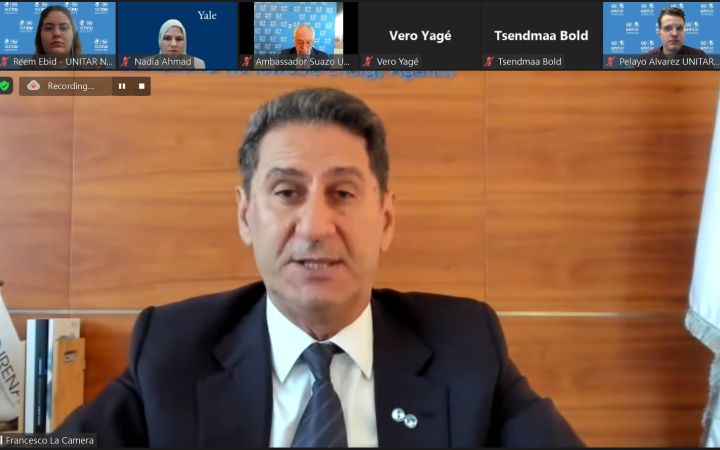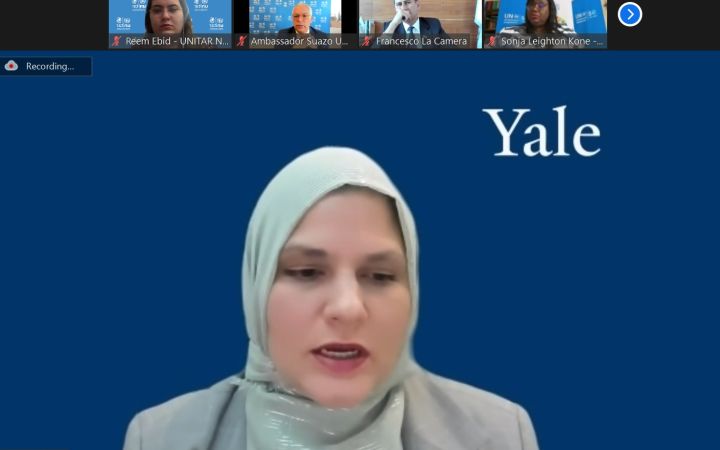10 May 2022, New York, United States (Virtual) – The United Nations Institute for Training and Research (UNITAR) New York office and Yale University third part of annual series, Looking Towards COP 27: Climate Extremes: The Housing Crisis, Food Shortages, and Energy Poverty, took place. The programme provided a unique discussion with experienced professionals on issues the climate is facing and actions to consider; to be able to reach and implement the set goals of the 2030 Agenda.
The session started by the welcoming remarks from Mr. Marco A. Suazo, Head of UNITAR New York Office, thanking the distinguished panelists and participants and expressing the importance of advancing the United Nations agenda for our environment’s safety. Mr. Suazo explained the drastic changes happening worldwide will result in housing crisis, food shortages and energy poverty, which all represent basic human needs.
Mr. Francesco La Camera, Director General of International Renewable Energy Agency (IRENA), talked about IRENA’s implementation and research programmes to accelerate the use of renewables. He explained how renewable energy solutions meet the world energy needs in a sustainable matter. Ms. Sonja Leighton-Kone, Acting Deputy Executive Director of the UN Environment Programme (UNEP), illustrated her talks about humans living in the danger zone using the example of South-East Asia. She explained how global crises are interconnected, specifically focusing on energy. Ms. Leighton-Kone talked about claiming clean renewable energy tackles energy poverty, such as using solar photovoltaic. She explained responding to climate emergencies, housing crisis or energy poverty means focusing on nature based solutions that can help the climate and has the power to boost our resilience to climate disasters.
Ms. Nadia Ahmad, Visiting Associate Professor, Yale Law School, and Associate Professor, Barry University, discussed the climate extremes and its impact on the housing crisis, food shortages, and energy poverty. She stressed on the importance of taking ownership of the process of climate negotiation. Ms. Ahmad illustrated her talk using the COVID19 pandemic as an example. She explained how attempts at climate negotiations overlook these impacts, especially as they impact the most vulnerable and poor. Ms. Ahmad shared alternative systems for access to food, energy, and housing. She talked about some methods to harness public private partnerships and develop strategies for climate negotiations.
The Looking Towards COP 27: Climate Extremes: The Housing Crisis, Food Shortages, and Energy Poverty, Part 3 session ended with an interactive Q&A session between panelists and participants.



